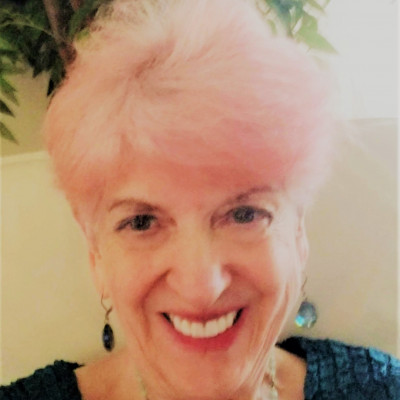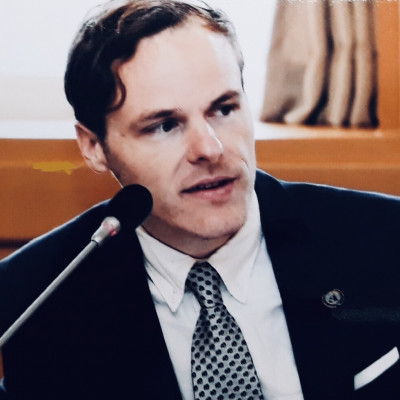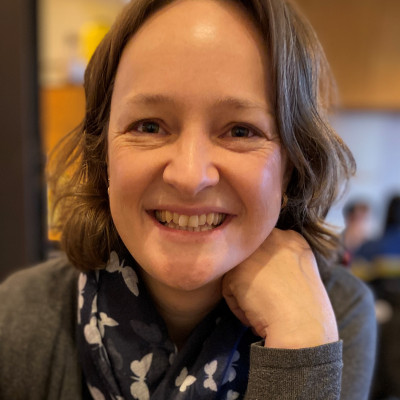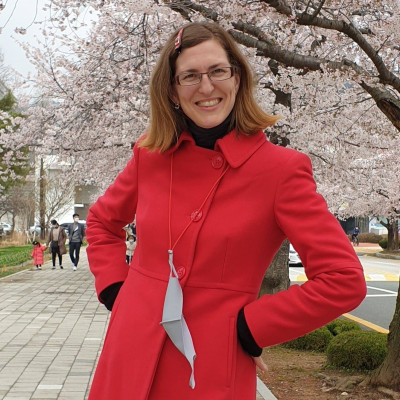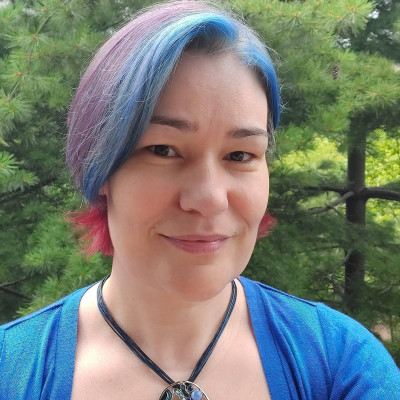Sessions / Peacebuilding / Peace Studies / Peace Linguistics
Teaching Language, Teaching Peace: Bridges to a Better World #3016
Featured Session
Teaching language and teaching peace are linked because both are bridges to a better world. What do people want most in Daegu, Delhi, and Denver or in Busan, Berlin, and Buenos Aires? What is the greatest hope in Gwangju, Guatemala City, and Gaza or in Mokpo, Manchester, and Mumbai? All over the world, we need and hope for peace. Rebecca Oxford defines peace as harmony and explains that it has at least three broad purposes: (a) to calm our minds and hearts, and give us a sense of well-being (inner peace, or peace with oneself); (b) to develop friendship, loving appreciation, and social justice in relationships with individuals, groups, countries, and cultures (social peace); and (c) to care for and enjoy Mother Nature’s wildlife, water, land, sky, and planets, and realize that nature supports our very lives (ecological peace). In short, peace involves caring for ourselves, others, and our environment.
How can we do this? Martin Luther King, Jr. said that peace requires working productively to harmonize conflicting perspectives, while Elise Boulding stated that peace demands imagination and love each day. Purposes and methods of peace are part of Oxford’s Language of Peace Approach (LPA). The LPA helps teachers integrate peace activities into teaching EFL or other languages, resulting in students’ greater language practice and competence, increased interest in peace, and stronger peacebuilding abilities. Teachers can benefit by developing their own peacebuilding skills while teaching students! Rebecca illustrates ways to weave inner peace, social peace, and ecological peace into language education, thus creating bridges to a better world. For instance, inner peace can be fostered by affirmations, mindfulness, deep breathing, and listening to music. Social peace depends, in part, on basic verbal communication strategies, nonverbal communication tools, and a simple, nonviolent communication process. Ecological peace is aided by forgetting responsibilities for a moment, walking outside, noticing colors of nature through the Rainbow Walk, and writing about how nature takes care of us and how we can take care of nature (Oxford, Olivero, Harrison, and Gregersen, 2021). The session closes with words from and pictures of important peace role models from many cultures – people who have built bridges to a better world through peace and through language. This session also offers insights to people who are not teaching but are seeking ways to bring peace more fully into their hearts, their relationships, and the environment. All of us can be peacebuilders.
Education and Prefigurative Politics: Six Pedagogies for Working Toward Peace/Justice Today #2765
This study examines the contribution of university educators toward prefiguratively creating tomorrow today in the higher education classroom. Educators often teach explicitly for social justice and social change through a variety of normative pedagogical frameworks. Yet, this linkage of pedagogy and prefigurative politics in university classrooms is underexamined. Hence, this paper investigates the varied literatures related to pedagogy for social change in universities, including but not limited to: (a) democratic pedagogy, (b) critical pedagogy, (c) transformative pedagogy, (d) conflict-sensitive pedagogy, (d) peace/social justice pedagogy, and (e) decolonial pedagogy. The paper examines the literature through the lens of prefigurative politics/pedagogy, which is understood as a form of praxis that attempts to reconstruct through education a more fair society. This is complemented with data from interviews with university educators in Korea. New pedagogical possibilities and critiques will be discussed.
Real World English: Negotiation Skills for Intercultural Conflict Resolution in ELT #2999
Many English language classes intentionally avoid activities that might elicit interpersonal conflict in efforts to create a comfortable learning environment. In the real world, however, learners often encounter such situations requiring intercultural negotiation skills to resolve conflicts in English with confidence and accuracy. Fortunately, negotiation skills such as active listening, brainstorming, evaluating and agreeing on solutions build on routine ELT activities such as interviewing, paraphrasing, collaborating and problem-solving. Framing these types of ELT activities as conflict resolution skills allows learners to broaden their strategies to effectively address conflict in English in class and beyond. In this workshop, educators who have integrated negotiation and ELT skills in these ways will share activities, materials and stories. Participants will reflect on encounters with intercultural conflict, complete a practical learning activity to help learners apply their English communication skills to conflict resolution, and share how they might design similar tasks in their own settings.
Global Citizenship and Capacity-Building for Peace #3105
Featured Session
Global Citizenship Education (GCED) aims to be transformative, equipping learners of all ages with the values, knowledge, and skills that reflect and instill respect for human rights, social justice, diversity, gender equality, and environmental sustainability. GCED is competence/capacity-oriented critical learning. It promotes respect for differences and diversity, being socially connected, transforming relationships, critical reflections on identities, skills for critical inquiry and analysis, and questions into underlying assumptions and power dynamics. Learning for peace is to acquire sensitivity of peace; violence and conflict; and capacities for conflict prevention, peacemaking, and peacebuilding.
Connecting Through Nonviolent Communication in ELT #3098
Relationships are important in language teaching. However, our habitual ways of relating to ourselves and each other are not always conducive to building connections. Nonviolent Communication (NVC) offers a way of thinking about and a method for enhancing these, and the purpose of this workshop is to experience the process in the context of relating to our students and experiencing connection through explorations of personal situations and guided examples. This interactive workshop intends to engage participants by making use of various types of activities (temperature checks, associations, polls, etc.). It is hoped that teachers will leave the workshop with an appreciation for NVC and a recognition of the value of needs for connections.
Challenges and Opportunities for Peace (or Conflict) in Higher Education #2680
Universities have a role to play in supporting peacebuilding in all societies but especially in (post)conflict contexts. Yet such work has rarely been examined. This paper then looks toward the diverse approaches of higher education to support peacebuilding, from policy and philosophy to pedagogical practices, in (post)conflict contexts. Specifically, the paper examines the work of university educators in two institutions in Afghanistan and Somaliland. Data for the research was collected through qualitative interviews with 12 university educators across the two institutions. Findings indicate a number of challenges and opportunities -- associated with race/ethnicity, gender, and linguistic diversity -- that university lecturers and their institutions face in supporting peace in diverse societies, particularly as relates to the ‘two faces’ of higher education to support or impede peacebuilding processes. The paper ends with a discussion of implications for curriculum, teaching and learning.
Transformative Pedagogies for Peace Education #3106
Second Session
Transforming pedagogies in peace education will bring about a surprising transformation of learners and facilitators together. Learning in which the stories and experiences of the participants’ lives are central will create truly participatory processes. Mutual learning through and beyond dialogues, exchanging what body and mind promptly capture and convey will create a dialogical, mutual learning. Creating step-by-step "aha!" moments through theatrical, musical, drawing, mime, and other types of activities that arouse all six senses will transform education into artistic and cultural representations of the learners’ lives. Creating and testing together new things and thoughts, acts and interpretations, with question-posing and detail-observing will form a critical way of learning. The pedagogy of estranging involves drawing distance with the familiar, inviting and facing the unfamiliar, to raise and respond to deep questions about oneself and the surrounding world.
